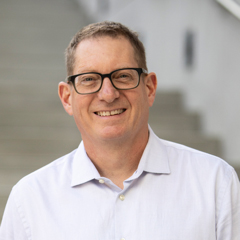Seminars (Visiting Scientists)
Fall 2023 Invited Speaker
Autumn Ivy, MD-PhD
University of California, Irvine

Seminar title: Neural Epigenetics of early life exercise reveal mechanistic targets in mouse models of cognitive dysfunction
Synopsis: Physical exercise is well known to have profound benefits to brain function, and specifically learning and memory. Neurotrophic factors (e.g. BDNF) and other mechanisms of neuroplasticity have been implicated as critical to exercise-induced memory improvements; however, these mechanisms have yet to be harnessed for the improvement of neurocognitive disorders. Furthermore, how physical exercise impacts the developmental trajectory of the juvenile brain is understudied. I will present our lab’s work in applying cutting edge tools in neural epigenetics to illuminate novel, exercise-induced epigenetic mechanisms that may act to facilitate long-term memory formation. These new mechanisms have broader implications for how we may harness exercise-based molecular targets and interventions to improve learning and memory in contexts of cognitive dysfunction, and will provide examples in a model of chronic early life stress exposure.
Date and Location: 1 November (4 PM), McCarthy Hall Rm 513
Spring 2024 Invited Speaker
Matthew Griffin, PhD
University of California, Irvine

Seminar Title: Sweet talk at the host-microbiota interface
Synopsis: We contain trillions of bacteria, fungi, archaea, and viruses in our gastrointestinal tract known collectively as our gut microbiota. Rather than mere passengers, these microbes play crucial roles in human health such as the development and regulation of our immune system. Numerous studies over the past 20 years have also correlated specific microbial species with various disease states including multiple cancers. However, the exact microbial metabolites, enzymatic activities, and host pathways that underlie these correlations remain largely unknown. In this talk, I will describe our ongoing work on a crucial class of microbial glycopeptides that augment host immunity during cancer progression and treatment. Our efforts to understand and control the production of these bioactive sugars will reveal molecular principles of host-microbiota crosstalk that underlie proper immune function. Moreover, our findings may ultimately provide new precision-based strategies to predict drug efficacy and improve cancer patient outcomes via their gut.
Date and Location: 10 April (4 PM), McCarthy Hall Rm 513
Fall 2024 Invited Speaker
Aimee Edinger, PhD
University of California, Irvine

Seminar title: Controlling intracellular traffic to treat cancer and obesity
Synopsis: Using sphingolipids to blockade multiple nutrient access pathways simultaneously offers a new strategy in the effort to starve cancer cells to death. This multi-pronged approach should be effective across a wide variety of cancer classes and suppress the development of resistance. Our unpublished work defines surprising new targets for sphingosine-like compounds that maintain homeostatic growth from yeast to man, suggesting a path to develop new multi-action drugs to reverse both cancer and obesity while avoiding toxicity to normal tissues.
Date and Location: 13 November (4 PM), McCarthy Hall Rm 513
Spring 2025 Invited Speaker
Matthew D. Marsden, PhD
University of California, Irvine

Dr. Marsden is an Associate Professor and Associate Director of the Center for Virus Research at UCI.
Seminar title: Viral hide and seek: Eliminating latent HIV reservoirs through viral reactivation
Synopsis: Human immunodeficiency virus (HIV) has had a catastrophic impact on individuals and communities around the world. It is estimated that 40 million people are currently infected with this virus and a similar number have died of HIV/AIDS related causes. Current HIV treatments prevent progression to AIDS but do not cure the infection. This seminar will discuss the latent reservoirs of HIV that prevent cure of the infection with currently available drugs and describe new approaches that are intended to eliminate this persistent virus.
Date and Location: 16 April (4 PM), McCarthy Hall Rm 513
Fall 2025 Invited Speaker
Rui Zhao, PhD
University of Colorado, Anschutz Medical Campus

Seminar title: The mechanism and regulation of 5’ splice site recognition
Synopsis: Recognition of 5’ splice site (ss) by U1 snRNP is the critical first step in pre-mRNA splicing. Alternative splicing factors frequently act on U1 snRNP to either facilitate or prevent it from binding to the 5’ splice site, thereby regulating splicing outcomes. In this talk, I will describe how we discovered human PRPF39 as a previously unrecognized alternative splicing factor, guided by our cryo-EM structure of yeast U1 snRNP. I will also discuss the molecular mechanism by which small molecules modulate the recognition of weak 5’ ss recognition by U1 snRNP for disease therapy.
Date and Location: 5 November (4 PM), CPAC-146
Spring 2026 Invited Speaker
Aaron F. Straight, PhD
Stanford University School of Medicine

Title: Functional compartmentalization of human centromeres
Synopsis: Centromeres are essential chromosomal regions that ensure accurate genome segregation during cell division. They are organized into epigenetically discrete compartments: a Centromere Protein A (CENP-A)-rich core for microtubule attachment and surrounding heterochromatic pericentromeres that promote cohesion. Despite their importance, the mechanisms that define, enforce and partition these chromatin domains remain poorly understood. To address this, we disrupted key H3K9 methyltransferases– SUV39H1, SUV39H2, and SETDB1– that establish heterochromatin in humans. We find that SETDB1 is required for H3K9 dimethylation at core centromeres, while SUV39H1/2 complete trimethylation. Unexpectedly, depleting all three enzymes results in aberrantly high H3K9me3, driving CENP-A expansion into pericentromeres. This promiscuous deposition is mediated by G9a/GLP methyltransferases, which selectively reestablish H3K9me3 within the centromere core. SETDB1, regardless of its enzymatic activity, blocks G9a/GLP-mediated heterochromatin deposition and CENP-A expansion, revealing a novel, catalytic-independent function in safeguarding centromeres. Overall, our work defines the molecular logic governing centromeric repression and uncovers foundational principles of epigenetic compartmentalization.
Date and Location: 15 April (4 PM), MH-513

